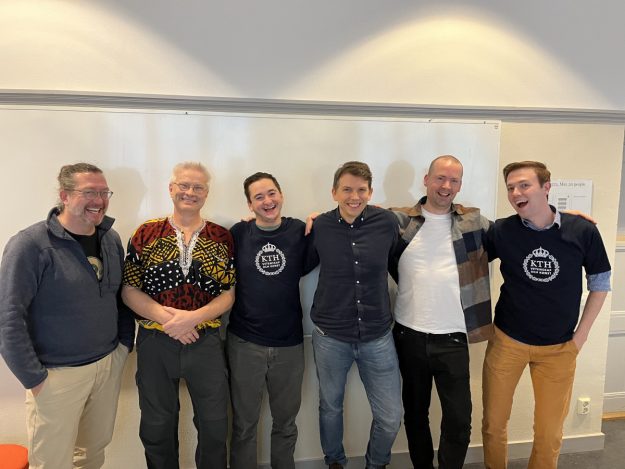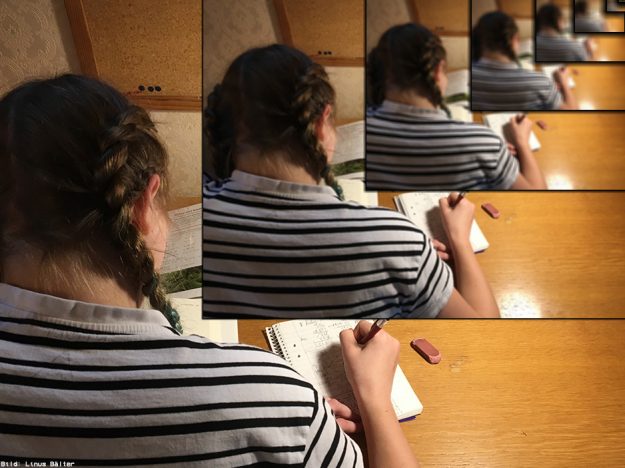 On October 26-28, 2022, Carnegie Mellon University and KTH successfully held a joint 3-day Workshop on efficient and effective data-driven learning and teaching. There were 30 attendees, mostly from KTH, but also from two companies (NE and ImgPlay) as well as representatives from Uppsala and Mälardalen University. The workshop was structured with an Introduction to question-based learning block in the mornings and Advanced Topics in the afternoon, with Office Hours for the Intro group running simultaneously. The workshop had a focus on hands-on activities and included lecture components as well. The event was sponsored by STINT and IMG Play.
On October 26-28, 2022, Carnegie Mellon University and KTH successfully held a joint 3-day Workshop on efficient and effective data-driven learning and teaching. There were 30 attendees, mostly from KTH, but also from two companies (NE and ImgPlay) as well as representatives from Uppsala and Mälardalen University. The workshop was structured with an Introduction to question-based learning block in the mornings and Advanced Topics in the afternoon, with Office Hours for the Intro group running simultaneously. The workshop had a focus on hands-on activities and included lecture components as well. The event was sponsored by STINT and IMG Play.
We are guest editing an issue of Multimodal Technologies and Interaction with the theme “Effective and Efficient Digital Learning”.
Despite many promising initiatives to use digital technology to enhance teaching and learning, its impact on the vast majority of education has so far been slim.
There are several reasons for this: (1) Staff experience a lack of resources, digital competence, and incentives to change well-established habits; (2) Digital technologies are in abundant supply but it is difficult to predict the outcomes without evidence and experience from previous implementations; and (3) Institutions can unintentionally create explicit and implicit barriers to innovation and change, or at least hinder their progress.
At the same time, the funding of schools and universities is competing with many other important and pressing needs.
One possibility for improving this situation would be to gather initiatives in technology-enhanced learning that include both a pedagogical and an economical perspective that can be used in constructive dialogues and debates with both school management and teachers. This is also the aim of this Special Issue on effective and efficient digital teaching and learning.
We welcome contributions that take up both sides and that include practical or theoretical support for either pedagogical improvements while the resource demands are kept at bay or that reduce the resource demands while at least maintaining the pedagogical quality.
See
https://www.mdpi.com/journal/mti/special_issues/digital_learning
for details.
Abstract
Sustainable education does not yet have a widely accepted definition in the literature. In this work, we start from the Sustainable Development Goal of Quality Education for All (SDG4) and interpret sustainable education as increasing the quality of learning whilst conserving the resources required to produce and deliver it. From this interpretation, we argue that one path towards realising sustainable education is through the identification of teaching practices that satisfy these conditions of increased quality whilst conserving resources. We present an overview of four case studies, where the conditions for sustainable education are demonstrated through the effective use of people, processes and technologies. Each case represents an intervention that was made to improve the quality of education within an intensive three-month project, which trained immigrants to be employable in the IT industry as junior software developers. Whilst the interventions are independent and unique, they are connected by the themes of quality improvement and resource conservation. In isolation, each specific case produced improvements for both teachers and students; however, it is by combining such approaches that we can start to realise the path towards sustainable education that will help lead to a better quality of education for all. The findings of this work suggest that quality education does not come at the cost of increased resource demands; rather, approaches exist that can be considered to satisfy the conditions for sustainable education.
Open access at
https://www.mdpi.com/journal/sustainability/special_issues/sustainable_technology_enhanced_education

Hur mycket repetition krävs för att behärska något?
Under din skoltid, har du någonsin undrat hur många gånger du måste repetera något, till exempel att lösa matematiska ekvationer, innan du behärska det? Nu har vi svaret: Det är åtta (8)!
Vi har genomfört en studie med data från kurser konstruerade med Open Learning Initiative-metoden (OLI). OLI-metoden ger bland annat ger konstruktiv återkoppling efter varje besvarad fråga. Till vår egen förvåning kom vi fram till till ett överraskande stabilt svar: antalet nödvändiga möjligheter att träna måste vara åtta (detta kommer att täcka behoven hos 98 % av eleverna). Goda nyheter för alla som kämpar med tradiga läxor!
Hela artikeln finns fritt tillgänglig på https://rdcu.be/6y0y
